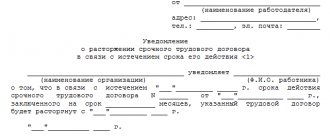Failure to perform (improper performance) of a contract or theft
For a long time, in law enforcement practice, the issue of distinguishing between civil torts related to non-fulfillment and improper execution of contracts from crimes, primarily from theft, has been acute.
Resolving this problem is of great importance for business activities. At present, no single established practice has been formed. There are many known cases of criminal cases being initiated on the basis of non-fulfillment of contracts and causing damage to counterparties in this regard. The opposite case is also not uncommon, when one of the participants in civil transactions submits an application to law enforcement agencies and in response receives a decision to refuse to initiate a criminal case with the motivation that there are civil legal relations and the applicant needs to resolve the dispute within the framework of civil proceedings.
Resolution of the Plenum of the Supreme Court of the Russian Federation dated November 30, 2017 N 48 “On judicial practice in cases of fraud, misappropriation and embezzlement” provides criteria that must be followed when qualifying fraud and distinguishing it from civil torts.
Thus, methods of stealing someone else’s property or acquiring rights to someone else’s property through fraud are deception or abuse of trust .
Deception may consist of:
- reporting knowingly false information, keeping silent about true facts;
- in intentional actions (providing counterfeit goods or other subject of a transaction, using various deceptive techniques when paying for goods or services or when gambling, simulating cash transactions, etc.).
Breach of trust consists of:
— in the use of trust relationships with the owner of the property or other person authorized to make decisions on the transfer of this property
- in accepting obligations with the deliberate absence of intention to fulfill them for the purpose of free circulation of someone else's property or acquisition of the right to it.
In cases where a person receives someone else's property without intending to fulfill the obligations associated with the terms of transfer of said property to him, which causes material damage, the act should be qualified as fraud if the intent arose on the part of the person before receiving someone else's property or the right to it.
The presence of such intent may be evidenced by:
- a person’s deliberate lack of real opportunity to fulfill an obligation in accordance with the terms of the contract;
— use by a person of forged documents when concluding a contract;
— concealment by a person of information about the existence of debts and pledges of property;
- disposal of received property for personal purposes contrary to the terms of the contract, and others.
Thus, a civil tort can be distinguished by the objective and subjective side of the act.
The objective side is characterized by reporting knowingly false information or taking actions to provide counterfeit goods or other subject of the transaction
In this case, it seems that the contract is being fulfilled, but it is being done inappropriately, which causes damage to the victim.
In the second case, the obligation is not fully fulfilled, and there is no counter-provision.
The subjective side is characterized by direct intent. Before receiving someone else's property, a person must have the intent to steal it. In this regard, concluding a civil contract is a method of committing a crime , using which an attacker defrauds money from a counterparty.
It is necessary to emphasize once again that the person’s intent to steal must arise in advance or before the conclusion of the contract, or it is possible that after the conclusion of the contract, but before the provision is made by the counterparty.
I would like to note that civil and criminal liability are not mutually exclusive, which law enforcement officials apparently do not fully understand. Often, during an inspection, the investigator or inquiry officer, having established the existence of a civil contract and corresponding relations, refuses to initiate a criminal case. The justification looks approximately like this: there are civil relations, there is no crime, to resolve the dispute it is necessary to apply to the court with a statement of claim.
This response is typical when conducting checks based on statements from the injured party sent to lower-level law enforcement agencies (district, city departments). Prosecutor's offices at the same level also adhere to this approach and often support investigators and interrogators. At the same time, I would like to note that similar facts are perceived differently when materials from operational investigative activities are sent by the operational units of the Ministry of Internal Affairs and the FSB. The reasons for such a differentiated approach to similar situations lie outside the framework of legal regulation, so I see no point in dwelling on them in detail.
Correlation with the concepts of “fine”, “penalty” and “interest”
There is no clear distinction between these terms in the legislation. In practice, there is an opinion that a fine and penalty are types of penalties, and the fine is established in the form of an exact amount, in a specific amount or as a percentage of the amount and is collected once. A penalty is a sanction for violating the terms of a contract, which is expressed as a percentage for each day of non-fulfillment of obligations or delay. Is interest under a contract a penalty? These are different types of interim measures and measures of liability of the counterparty. If the agreement does not indicate the creditor’s right to collect a penalty, then, in addition to direct losses that must be proven and justified, he can only count on receiving interest for the use of someone else’s money in accordance with Art. 395 of the Civil Code of the Russian Federation.
Determination by the parties of the extent of liability for violation of obligations in the contract
When determining the terms of interaction, rights and obligations and measures of liability for failure to fulfill obligations, the parties must first of all take into account the legislative norms of this type of legal relationship and transaction. If under the Civil Code there are no strict rules regarding liability measures, and it is possible to clarify the provisions of the law, the parties have the right to establish the amount and procedure for determining and collecting penalties for non-fulfillment or improper fulfillment of the terms of the contract.
Wording on the amount of the sanction, if they allow it to be characterized as an element of pricing (for example, “if the delivery of products is delayed by more than 15 days, the price of the product initially set increases by 3%”, etc.), may become the basis for charging VAT for the amount of the penalty.
An example of the wording of a penalty clause:
In case of failure to fulfill the obligation to pay for the goods on time specified in clause (the clause of the agreement, contract is indicated) of this agreement, the Buyer is obliged to pay a penalty in the amount (a percentage of the amount or a fixed amount is indicated) of the amount of the resulting debt for each day of delay, starting from the day on which the obligation under the contract was to be fulfilled.
In case of violations when paying for services, the penalty under the contract for the provision of services can be any: set-off, penalty, exceptional, alternative; the legislator gives the parties to the transaction complete freedom of choice. But it is also necessary to take into account the rights of other participants, the restrictions possible when applying the law in practice, because the courts base their decisions, among other things, on the principle of fairness and compliance of the measure of liability with the violation committed. Therefore, they often reduce the penalty.
Reduction rules
The court may reduce the amount of the penalty for failure to fulfill obligations under the contract on the basis of Art. 333 of the Civil Code of the Russian Federation - for this purpose a petition is submitted. This is one of the legal ways to prevent abuse of rights when freely determining the terms of an agreement.
A reduction is allowed only in exceptional cases in the presence of the following circumstances:
- the amount of the penalty is equal to or exceeds the amount of the principal debt;
- the sanction percentage clearly exceeds the market rate for short-term loans;
- there is reason to believe that the interested party delayed going to court in order to increase the amount of liability.
Difficult financial situation, seizure of the debtor's property, non-payment of amounts under concluded agreements or from the budget are not grounds for reduction.
3.1. Penalty for the customer
The procedure for calculating penalties for the customer in case of delay in fulfilling the obligation stipulated by the contract is established by Part 5 of Article 34 of Law No. 44-FZ. The amount of the penalty is 1/300 of the key rate of the Central Bank of the Russian Federation in force on the date of payment of the penalty of the amount not paid on time. The penalty is accrued for each day of delay in fulfilling the obligation stipulated by the contract, starting from the day following the day of expiration of the deadline for fulfilling the obligation established by the contract. It should be noted that the amount of the penalty is not limited by the contract price.
Formula for calculating penalties for the customer:
| Penya | = | The amount that the customer did not pay on time | × | Number of calendar days of delay | × | 1/300 of the Central Bank key rate on the day the penalty is paid |
2.1. Penalty for the supplier
The amount of the fine for the supplier is established by Part 7 of Article 34 of Law No. 44-FZ and is 1/300 of the key rate of the Central Bank of the Russian Federation in force on the date of payment. The penalty is calculated from the price of the contract (a separate stage of contract execution), reduced by an amount proportional to the volume of obligations stipulated by the contract (the corresponding stage of contract execution) and actually fulfilled by the supplier. The penalty is accrued for each day of delay in fulfilling the obligation, starting from the day following the day of expiration of the deadline for fulfilling the obligation established by the contract and including the day of actual fulfillment of the obligation by the supplier. In a letter from the Ministry of Finance of the Russian Federation dated April 13, 2016. No. 02-04-06/21780 states that the calculation of the penalty includes all calendar days “... regardless of the day off (holiday or non-holiday), the penalty is charged for each day of delay in the supplier’s fulfillment of the obligation provided for in the contract, starting from the day following the day of expiration the deadline for fulfilling the obligation established by the contract...". When the customer calculates the amount of the penalty accrued to the counterparty, the days required for the customer to accept the delivered goods, work performed or services rendered, and to formalize the results of such acceptance, are not taken into account, unless otherwise provided by the contract (see letter of the Ministry of Finance of the Russian Federation dated March 16, 2020 No. 24-03 -07/19771). It should be noted that the amount of the penalty is not limited by the contract price.
Formula for calculating penalties for a supplier:
| Penya | = | Price of the contract (contract stage) | – | The cost of an obligation that the supplier fulfilled on time | × | Number of days overdue | × | 1/300 of the Central Bank key rate on the day the penalty is paid |
Purpose and application
In accordance with the Civil Code of the Russian Federation, a contractual penalty is applied if such a condition is clearly stated and defined in the agreement. In other cases, the provisions of the law on the extent of liability of the parties are fulfilled.
It is important to remember that in certain cases the size of the sanction is fixed at the legislative level, and the parties cannot reduce it by their own decision; they only have the right to increase it.
Such a strict fixation is established by the legislator as a measure of liability of a contract participant in the event of:
- failure to comply with the deadline for fulfilling consumer requirements by the seller - here the sanction established by the “Law on the Protection of Consumer Rights” is applied;
- failure by the insurer to comply with the conditions regarding the deadline for returning the insurance premium or part thereof to the policyholder under the law on compulsory motor liability insurance (Part 4, Article 16.1 of the Federal Law of April 25, 2002 No. 40-FZ).
Thus, to briefly answer the question of what a penalty under a contract is: it is an effective tool for realizing the rights of the parties to the contract, it serves as a guarantee of fulfillment of obligations. In case of their violation, if such a sanction is provided for in the contract, the party does not need to prove its losses; it is enough to refer to a specific clause of the document. Therefore, the penalty is used in practice very often.
Kinds
In addition to the above (fine or penalty), there are other types of this sanction, with the possibility or impossibility of simultaneously collecting losses from the transaction participant:
- offset, in this case, the described measure of liability is applied along with the recovery of damages in the part not covered by it;
- exceptional, when only DV is recovered, and losses are not subject to compensation. Such sanctions, due to established practice, are applied when interacting with carriers and when providing transport services;
- penalty, when recovery of damages is possible in full in excess of the DV, this rule applies only if there is a direct indication in the agreement;
- alternative, when the creditor has the right to choose one of the above methods of protecting his rights. It also applies if there is a direct indication in the contract.
The parties determine a penalty for violation of obligations in the contract. But there are cases when the legislator regulates the amount of sanctions in a certain area of legal relations with specific rules.
An example of fixing the amount of a penalty for violation of obligations under a contract at the legislative level:
- violation by the seller of obligations not under the contract, but in accordance with the law on the protection of consumer rights, for example: failure to comply with deadlines for fulfilling consumer requirements, failure to comply with the deadline for the transfer of prepaid goods, delay in performing work, delay in fulfilling certain consumer requirements (Articles 23-31 of the PPZPP);
- late payment on a bill of exchange (Article 3 of Federal Law No. 48, which is called “On promissory notes and bills of exchange”);
- delay in the return of the insurance premium to the policyholder by the policyholder (Article 16.1 of the Federal Law “On Compulsory Motor Liability Insurance”);
- late payments in fulfillment of obligations under the agreement for participation in shared construction (Article 5 of Federal Law-214).
Accrual period
The penalty begins to accrue from the moment the delay begins, that is, from the next day after the day on which the obligation under the contract should have been fulfilled. The moment of determining the end of the collection period raises many questions; it all depends on the legal relations that have developed between the parties. As a general rule, a penalty is accrued until the full fulfillment of obligations under the contract by the person who violated the terms of the agreement, regardless of the moment of termination of the agreement.
If it is determined at the legislative level or separately agreed upon by the parties that the sanction is collected from the moment of termination of the agreement or contract, the penalty is collected until this moment. Plenum of the Supreme Court No. 7 of March 24, 2016 connects the moment of termination of collection with the moment of termination of the main obligation under the contract.
If, for example, the parties have agreed that their contractual obligations will cease entirely upon expiration of the contract, the penalty will be calculated on the day that is the expiration date of the agreement. Judicial practice (Resolution of the Presidium of the Supreme Arbitration Court of the Russian Federation in case No. 8171/13, which was adopted on November 12, 2013) indicates that termination of obligations to return the penalty accrued under the contract is also possible through compensation, novation or debt forgiveness.
Supplier liability
An important point is that Part 6 of Article 34 of Law No. 44-FZ provides for the customer’s obligation to send the supplier a demand for payment of penalties (fine, penalty) in any case of violation by the latter of its obligations under the contract. That is, the customer is always obliged to send a demand if there was a violation of its obligations by the supplier. The customer does not have the right to choose whether to send a request or not.
From the procedure for calculating penalties and fines described below, exceptions are possible in cases where, in accordance with the legislation of the Russian Federation, the penalty for the supplier must be calculated in a different manner (for example, contracts for the provision of MTPL services).






